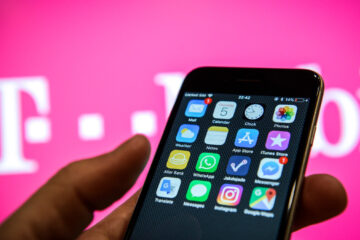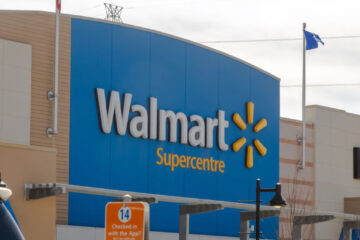Whether you’re an investor with holdings in big tech stocks or just an everyday person trying to make a living and take care of a family, there has been a lot of worrisome talk in the news this week.
The hot topic of the moment is President Donald Trump’s newly announced tariffs. They have been given a 90-day pause after quite a bit of public outcry — except for China, that is — but are still of major concern to businesses and consumers alike.
💵💰Don’t miss the move: Subscribe to TheStreet’s free daily newsletter 💰💵
Among consumers, the biggest worry is that the tariffs will cause prices to skyrocket on everything from groceries to household necessities like paper towels and toilet paper. And whether that fear has any truth to it has a lot to do with where the products in question are made.
Related: This popular retailer could be completely destroyed by tariffs
Roughly 17% of all food and beverages Americans consume are imported, but certain items lean more heavily on a supply chain outside the U.S. Seafood and coffee are two of the big ones, with around 80% of the country’s supply of both coming from outside sources.
When Americans feel fear about the future, they often to turn to big names in the business world for words of advice. This time, it was Amazon CEO Andy Jassy who spoke up, and unfortunately, what he had to say is not going to soothe anyone’s fears.
Andy Jassy spoke about what to expect in the future in a CNBC interview.
Image source: DFree / Shutterstock.com
The days of cheap Amazon hauls are about to change
When asked during an April 9 interview with CNBC about how tariffs could change the Amazon shopping experience, Jassy said consumers buying from Amazon’s massive network of third-party suppliers can expect to see increased prices.
“I understand why, I mean, depending on which country you’re in, you don’t have 50% extra margin that you can play with,” Jassy said, speaking with CNBC’s Andrew Ross Sorkin. “I think they’ll try and pass the cost on.”
Related: Jeff Bezos’ Amazon quietly launches plan to take down Elon Musk
It’s important to note that Jassy is referring specifically to the third-party seller network, and that the company is making an effort to curtail the pricing for which it’s famous.
“It’s hard to know what’s really going to happen,” Jassy said. “We’re going to try to do everything we can to keep prices as low as possible for customers.
Jassy also said that Amazon has done some “strategic forward inventory buys” in order to get as many items as makes sense to keep customer pricing low.
Should you buy ahead?
When Sorkin mentioned to Jassy that his 14-year-old son said he thought he should make a laptop purchase he’d been planning sooner than later to avoid inflated costs, Jassy laughed, saying he has a “smart son.”
That said, it’s a no-brainer that consumers considering larger tech purchases manufactured outside the U.S., such as laptops, phones, and televisions, may want to do so in the next 90 days to avoid whatever could follow if the tariffs take effect.
Jassy, however, said customer behavior hasn’t shifted a lot just yet.
“People have not stopped buying,” he said. “In certain categories, we see a little bit of buying ahead, but it’s hard to know if it’s just an anomaly in the data because it’s just a few days, or how long it’s going to last.”
Related: Nintendo makes a harsh decision amid threat of tariffs


